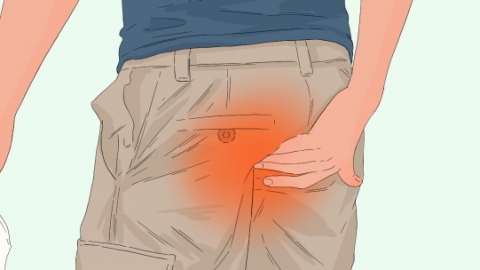How to treat pain from anal fissures
Methods for treating anal fissure pain include warm water sitz baths, adjusting diet, improving bowel habits, topical medication for symptom relief, and surgical intervention. Appropriate treatment should be selected based on the severity of the condition, and most mild cases can be relieved with conservative management. If pain persists or worsens, bleeding becomes frequent, or signs of infection appear, prompt medical attention is recommended.
1. Warm Water Sitz Baths: Soak in warm water at 38–40°C for 15–20 minutes daily. This helps relax the anal sphincter muscle, cleanses the perianal skin, reduces inflammatory irritation, and alleviates both pain and sphincter spasm. It is especially beneficial after defecation or before bedtime.
2. Adjusting Diet: Increase dietary fiber intake by consuming foods such as celery, apples, and oats. Maintain a daily fluid intake of 1500–2000 ml to soften stools and reduce friction and irritation on the anal fissure during bowel movements.

3. Improving Bowel Habits: Establish regular bowel habits, avoid prolonged straining or sitting on the toilet (no more than 5 minutes), and refrain from excessive用力 during defecation. Use laxatives such as lactulose if necessary to prevent constipation from worsening the fissure.
4. Topical Medication: Use hemorrhoid ointments or nitroglycerin ointment as directed by a physician. The former helps reduce local inflammation and pain, while the latter relaxes the anal sphincter and improves blood flow to promote healing. These medications should be used consistently according to prescribed regimens.
5. Surgical Intervention: Recommended for chronic anal fissures, cases unresponsive to conservative treatment, or those presenting with the anal fissure triad (anal fissure, sentinel pile, and hypertrophied anal papilla). Procedures such as fissurectomy or lateral internal sphincterotomy can effectively resolve pain and promote healing.
Daily care includes wearing soft, breathable cotton underwear to minimize irritation of the perianal skin; avoiding prolonged sitting or standing; engaging in light physical activity such as walking; and gently wiping with soft toilet paper after bowel movements to maintain dryness and cleanliness of the anal area.




